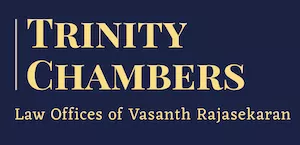- within Litigation and Mediation & Arbitration topic(s)
- with readers working within the Law Firm industries
- within Real Estate and Construction, Government, Public Sector and Insolvency/Bankruptcy/Re-Structuring topic(s)
Introduction
The present article provides a summary of the judgment passed by the High Court of Delhi in the case of Union of India vs. Rishabh Constructions Pvt. Ltd.1. The case revolves around an appeal filed by the Union of India under Section 37(2)(b) of the Arbitration and Conciliation Act, 1996 ("Arbitration Act") challenging an interim order passed by an arbitral tribunal. The central issue pertains to the condonation of a 132-day delay in filing the appeal, which the court ultimately refused, resulting in the dismissal of the appeal.
Brief Facts
The Union of India ("Petitioner") filed an appeal against an interim order of the arbitral tribunal dated 7 January 2024. This order was issued in response to two applications under Section 17 of the Arbitration Act. The first application, filed by Rishabh Constructions Pvt. Ltd. ("Respondent"), sought the release of performance bank guarantees and advance bank guarantees, which was partially allowed. The second application, filed by the Petitioner, sought an extension of the bank guarantee, which was rejected. The Petitioner filed the appeal under Section 37(2)(b) of the Arbitration Act on 19 July 2024, i.e., 132 days after the prescribed 60-day limitation period had expired.
Petitioner's Contentions
The Petitioner argued that the delay in filing the appeal was unintentional and was caused by procedural requirements within the government departments. Further, the Petitioner cited the negligence of their previous counsel, who allegedly failed to act promptly and did not inform the Petitioner about the enforcement proceedings initiated by the Respondent.
The Petitioner sought to justify the delay by pointing to the administrative processes and the eventual replacement of their counsel, which they argued constituted "sufficient cause" for condoning the delay.
Respondent's Contentions
The Respondent opposed the condonation of delay, arguing that the Petitioner's appeal was filed well beyond the limitation period without sufficient cause. The Respondent contended that the Petitioner's delay was a result of administrative inefficiency, which does not warrant special consideration under the law. It was also highlighted that the Respondent had already sought enforcement of the arbitral tribunal's order, which had been granted, and thus, allowing the appeal at this stage would prejudice the Respondent's vested rights.
Decision
The High Court, refused to condone the delay by emphasising upon the principles laid down by the Supreme Court in State of Maharashtra vs. Borse Brothers Engineers & Contractors (P) Ltd.2. The decision in Borse Brothers3 stressed on the importance of speedy resolution in arbitration proceedings. The High Court noted that the Petitioner had failed to provide a reasonable explanation for the inordinate delay, and the reasons provided were deemed to be typical administrative delays that do not constitute "sufficient cause" under the law. Consequently, the application for condonation of delay was rejected, and the appeal was dismissed as barred by limitation.
Comment
The judgment sets out the judiciary's strict stance on adhering to limitation periods in arbitration-related matters, reflecting the overarching objective of the Arbitration Act, to ensure the expeditious resolution of disputes. The High Court rightly refused to accept administrative inefficiency and negligence by counsel as valid grounds for condoning substantial delays. This decision serves as a cautionary tale for government bodies and other litigants, highlighting the necessity of prompt and diligent action in legal proceedings. It also reinforces the principle that government entities are not entitled to any special treatment in relation to procedural lapses. The decision aligns with the need to balance the scales of justice, ensuring that the rights of the opposing party are not undermined by delays attributable to administrative laxity.
Footnotes
[1] (ARB. A. (COMM.) 44/2024).
[2] (2021) 6 SCC 460.
[3] (2021) 6 SCC 460.
The content of this article is intended to provide a general guide to the subject matter. Specialist advice should be sought about your specific circumstances.



